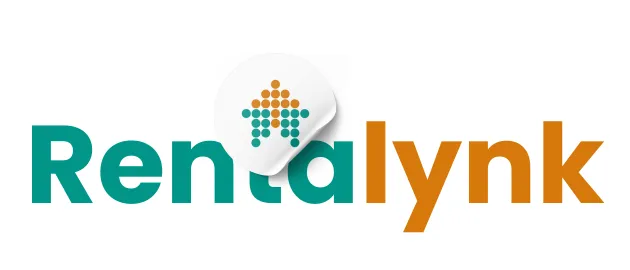Introduction
Uganda's real estate market offers a range of investment opportunities driven by its growing economy, urbanization, and increasing demand for housing and commercial spaces. Investors are drawn to the potential for high returns and the diverse opportunities across residential, commercial, and industrial sectors.
The residential real estate market in Uganda is expanding rapidly, particularly in urban areas such as Kampala. The demand for housing is fueled by population growth, urban migration, and a rising middle class. Residential developments, including apartments, townhouses, and gated communities, are attracting both local and international investors.
Commercial real estate is also a lucrative investment option in Uganda. The increasing number of businesses and multinational companies setting up operations in the country has created a demand for office spaces, retail centers, and mixed-use developments. Prime locations in major cities offer high rental yields and capital appreciation.
Industrial real estate is gaining attention as Uganda's economy diversifies and industrializes. Warehousing, logistics centers, and manufacturing facilities are in demand to support the growing sectors of agriculture, manufacturing, and trade. Industrial parks and special economic zones are being developed to attract investment and promote economic growth.
Tourism and hospitality real estate present significant investment opportunities in Uganda. The country's natural beauty, wildlife, and cultural heritage attract tourists from around the world. Investments in hotels, resorts, and eco-tourism projects can capitalize on the growing tourism industry and contribute to sustainable development.
Infrastructure development is a key driver of real estate investment in Uganda. The government's focus on improving roads, airports, and utilities enhances connectivity and accessibility, making real estate projects more viable and attractive. Infrastructure projects such as the Standard Gauge Railway and Entebbe Expressway are boosting investor confidence.
Real estate investment trusts (REITs) are emerging as a popular investment vehicle in Uganda. REITs allow investors to pool funds to invest in a diversified portfolio of income-generating real estate assets. This provides an opportunity for small investors to participate in the real estate market and benefit from regular income and capital appreciation.
The regulatory environment in Uganda is becoming more favorable for real estate investment. The government has introduced policies and reforms to streamline property registration, reduce transaction costs, and protect investors' rights. These measures enhance transparency, reduce risks, and encourage both domestic and foreign investment.
Challenges such as land tenure issues and limited access to financing still exist in Uganda's real estate market. However, innovative solutions such as land reforms, mortgage financing schemes, and public-private partnerships are being implemented to address these challenges and create a more conducive investment environment.
Rentalynk addresses these challenges by offering a platform that connects investors with property developers, real estate agents, and financial institutions. Through Rentalynk, investors can access a wide range of investment opportunities, market insights, and financing options. The platform's data-driven approach helps investors make informed decisions and maximize their returns.
Investment in affordable housing is another promising area in Uganda. The demand for affordable housing is high, and there are opportunities for investors to develop low-cost housing projects that cater to low- and middle-income families. Government incentives and subsidies can further enhance the attractiveness of these investments.
The growing middle class in Uganda is driving demand for high-quality residential and commercial properties. As incomes rise, there is an increasing preference for modern, well-equipped homes and offices. Developers and investors who cater to this market segment can achieve significant returns.
The use of technology in real estate is transforming the investment landscape in Uganda. Digital platforms, property management software, and online marketplaces are improving efficiency, transparency, and accessibility in the real estate market. Investors can leverage technology to streamline transactions, manage properties, and access market data.
Sustainable real estate development is gaining momentum in Uganda. Investors are increasingly focusing on green buildings, energy-efficient designs, and sustainable construction practices. These investments not only contribute to environmental sustainability but also attract tenants and buyers who value eco-friendly properties.
Real estate education and training programs are enhancing the skills and knowledge of professionals in Uganda's real estate sector. These programs equip developers, agents, and investors with the expertise needed to navigate the market and implement best practices. Education and training are essential for the growth and development of the real estate industry.
Cross-border investment is becoming more common in Uganda's real estate market. Investors from neighboring countries and international markets are exploring opportunities in Uganda due to its strategic location, economic potential, and favorable investment climate. Cross-border investment brings capital, expertise, and new market dynamics to the real estate sector.
Public-private partnerships (PPPs) are playing a crucial role in real estate development in Uganda. PPPs facilitate collaboration between the government and private sector to undertake large-scale projects such as affordable housing, commercial complexes, and infrastructure development. These partnerships leverage resources and expertise to deliver impactful projects.
The real estate market in secondary cities and emerging urban centers is also gaining traction in Uganda. Cities such as Jinja, Mbarara, and Gulu are experiencing growth and attracting investment in residential, commercial, and industrial real estate. These secondary markets offer untapped potential and lower entry costs for investors.
Real estate advisory and consultancy services are supporting investors in navigating the Ugandan market. These services provide market research, feasibility studies, valuation, and strategic planning to help investors make informed decisions and optimize their investments. Professional advice is crucial for mitigating risks and achieving investment goals.
Rentalynk enhances real estate investment opportunities in Uganda by providing a comprehensive platform for property listings, market analysis, and investment tools. The platform connects investors with the right opportunities and partners, making it easier to explore and capitalize on Uganda's dynamic real estate market.
Rentalynk Solution
Rentalynk connects investors with property developers, real estate agents, and financial institutions, providing access to investment opportunities and market insights.

